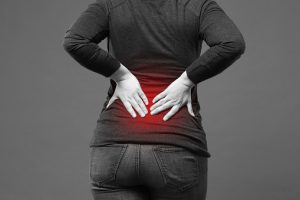
The participants were recruited from outpatient clinics at the University’s hospitals. The patients were observed for six weeks prior to beginning the experimental exercise regime to control for any potential natural changes to their physiques or overall health. None were observed. The patients were all non-dialysis CKD patients.
The experimental trials consisted of 12 weeks of monitored aerobic exercises. These included using the treadmill, rowing, and cycling. The exercises performed also included a combination of aerobic exercises and leg extension exercises such as using a leg press. The exercise was performed in 30-minute intervals, three times a week.
The combination of aerobic and resistance exercises seemed to be the magic formula. While benefits were seen in all patients who underwent the exercise regimens, the patients who performed the combined exercises showed greater improvements than those who did only the aerobic half.
The results in muscle mass gain were five percent for those doing aerobic exercises and nine percent for those doing the combined. In terms of overall improvement in strength, the patients doing the aerobic exercises only showed an increase of 17 percent compared to 49 percent for those who did both the aerobic exercises and the resistance training. Leg strength showed a respective increase of 19 percent to 39 percent between the aerobic and combined participants. Walking distance was the most comparable measure between the groups, with aerobic participants walking 28 meters on average and the combined group walking 32 meters.
Patients Notice the Benefits of Exercise on Their Fitness Level
The study quoted one female participant, aged 80, as saying, “I went for my first session and I was absolutely over the moon. I loved it because it was just exercise and I thought fancy me at my age and I can do all this. I thought when I tell my grandchildren they will be absolutely delighted. I used to really like the exercise and the staff there were so supportive and explained everything to me. I was just a very happy lady.”
Another male patient, aged 62, was quoted as saying, “I have certainly noticed that my general level of fitness changed after the extra CKD and I discovered muscles that I hadn’t had for a little while.”
Dr. Tom Wilkinson from the University of Leicester, one of the researchers responsible for the study, said, “There is limited research on the effects of exercise in CKD patients, and a lack of knowledge on what exercise is most beneficial in this group. Our study shows that both aerobic exercises and strength exercises are important in CKD patients in keeping muscles strong and healthy and can be combined successfully and safely.”
Related:
Chronic kidney disease diet: Food list, recommendations, and recipes
Sleep disorders may impact chronic kidney disease progression: Study